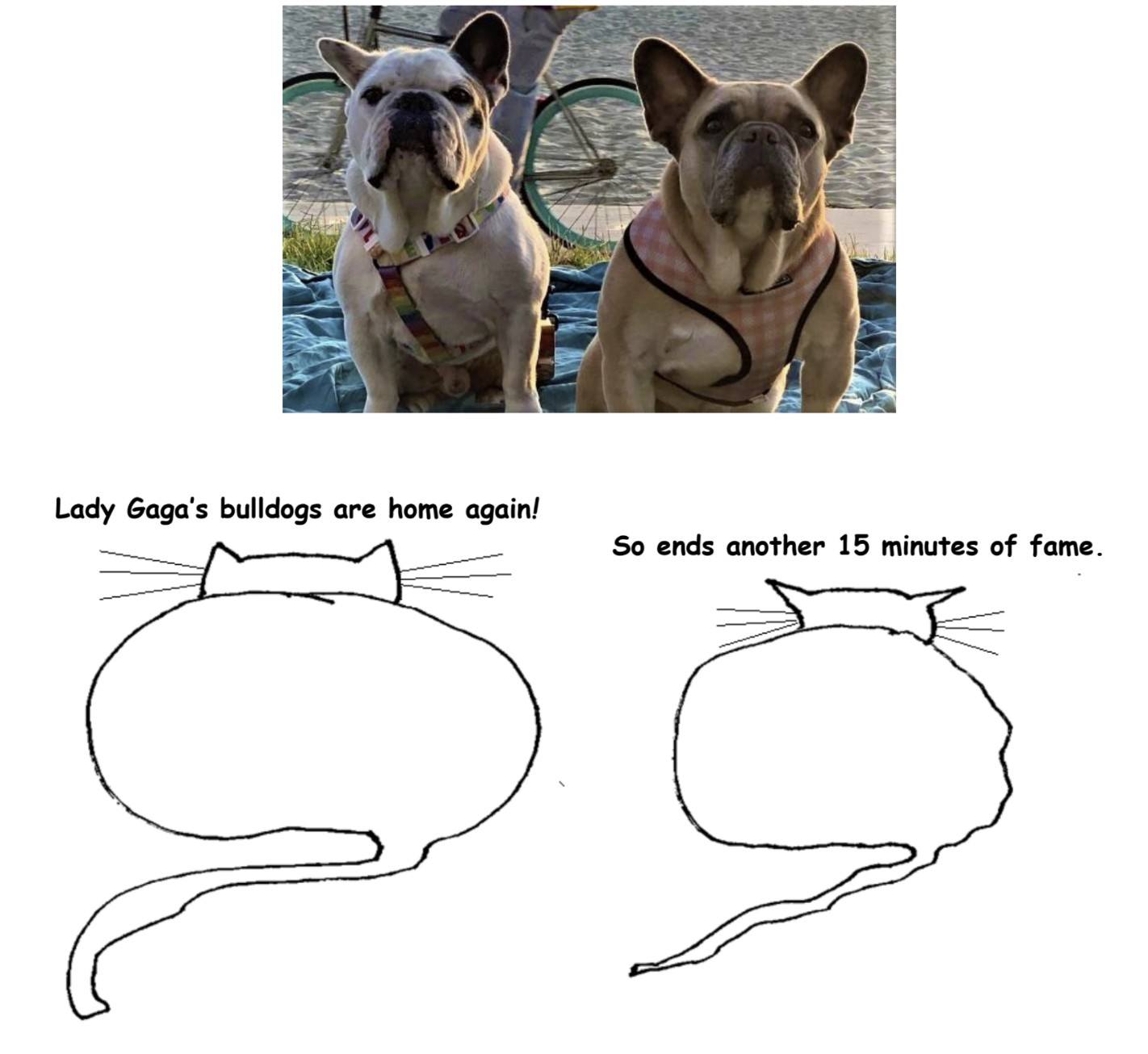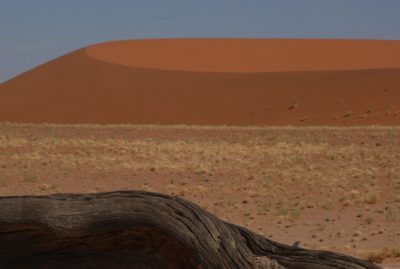by Brooks Riley

by Brooks Riley

by Bill Murray
 Former Finnish President and Nobel laureate Martti Ahtisaari once gave a talk in our town and we went to see him. The distinguished gentleman who introduced him at Atlanta’s distinguished Piedmont Driving Club listed among Ahtisaari’s achievements “helping to achieve independence for Nambia.”
Former Finnish President and Nobel laureate Martti Ahtisaari once gave a talk in our town and we went to see him. The distinguished gentleman who introduced him at Atlanta’s distinguished Piedmont Driving Club listed among Ahtisaari’s achievements “helping to achieve independence for Nambia.”
We visited Nambia a few years back, and found that the locals actually call it “Namibia.” Its European colonizers called it Southwest Africa. Call it what you like, it’s one of the world’s really remarkable places. Unusual things happen in Namibia.
Most places, rivers flow to the sea. The thousand-mile long Okavango River flows into desert, beginning in the highlands of Angola where it’s called the Cubango. The Cubango becomes the Kavango as it marks the Angola/Namibia border. There it hits a fault line and spills into the Kalahari Desert in Botswana, where it is finally known as the Okavango.
It’s hard to visualize an inland delta, so consider its scientific definition; geographers call it an alluvial fan, depositing some two million tons of sand and silt every year and draining summer rain from a catchment area something like the size of Nepal or Tunisia.
This labyrinth of channels, islands and plains brings forth papyrus swamps, forests and savannah, providing habitats for elephant, lion, crocodile, hyena, leopard, zebra, cheetah, porcupine, monkey, serval, baboon, wild dog, hippo, giraffes, buffalo, wildebeest, kudu, warthog, impala, tsessebe and countless more. Read more »
by Sarah Firisen
 I just spent two months living on the Caribbean island of Grenada. It’s a wonderful place with a somewhat antiquated healthcare system. To visit Grenada, I had to have a negative PCR test within 72 hours of flying. I was planning to go to a clinic and wait in line, which I’d done for a previous PCR test. I’d waited in line in the freezing cold for almost 3 hours. But a couple of weeks before my flight in January, Jet Blue let me know that Grenada was accepting PCR tests through a company called Vault who would mail me an at-home test. I signed up, they sent me the test, and three days before my flight, I logged onto a Zoom call with Vault from the comfort of my own living room. My test kit had a barcode and I had to show that to the technician on the Zoom. She then watched me spit into the vial with the barcode and instructed me how to package up the kit appropriately to send it back. I walked it over to UPS 30 minutes later, and within 48 hours, I received my results by email.
I just spent two months living on the Caribbean island of Grenada. It’s a wonderful place with a somewhat antiquated healthcare system. To visit Grenada, I had to have a negative PCR test within 72 hours of flying. I was planning to go to a clinic and wait in line, which I’d done for a previous PCR test. I’d waited in line in the freezing cold for almost 3 hours. But a couple of weeks before my flight in January, Jet Blue let me know that Grenada was accepting PCR tests through a company called Vault who would mail me an at-home test. I signed up, they sent me the test, and three days before my flight, I logged onto a Zoom call with Vault from the comfort of my own living room. My test kit had a barcode and I had to show that to the technician on the Zoom. She then watched me spit into the vial with the barcode and instructed me how to package up the kit appropriately to send it back. I walked it over to UPS 30 minutes later, and within 48 hours, I received my results by email.
A couple of weeks ago, towards the end of my stay in Grenada, I started to get some awful shooting pains in my right leg. A few days later, I woke up to a horrible rash that was blistering. I went on WebMD and put in my symptoms. Looking at the possible diagnoses it suggested, I was reasonably sure that I had shingles. I was able to look at photos of a typical shingles rash that looked a lot like what was all over my thigh. I took a photo of my rash, went online to my health insurer, UnitedHealthcare, and requested a telehealth video call. Five minutes later, a doctor came online. I uploaded the photo of my rash, told her my symptoms, and said that I thought I had shingles. She immediately validated my WebMD diagnosis and prescribed a course of Valtrex, which I could get filled at a Grenadian pharmacy. Read more »
by Michael Liss
 The Machine has me in its tentacles. Some algorithm thinks I really want to buy classical sheet music, and it is not going to be discouraged. Another (or, perhaps it is the same) insists that now is the time to invest in toner cartridges, running shoes, dress shirts, and incredibly expensive real estate.
The Machine has me in its tentacles. Some algorithm thinks I really want to buy classical sheet music, and it is not going to be discouraged. Another (or, perhaps it is the same) insists that now is the time to invest in toner cartridges, running shoes, dress shirts, and incredibly expensive real estate.
Swinging over to the relative peace and quiet of my email box, I find an extraordinary number of politicians bidding against one another for my attention. It’s a little like Christmas come early: “Now, Stringer, now, Helen, now Andrew and Adams! On, Williams on, Loree! on, Kallos and Weprin!” Every single one of them vibrates with intensity, assuring me that he or she is ready to serve me, my family, my community, and the world. Oh, and, by the way, brother, can I spare a dime?
I need my dimes right now. I’m not moving to a deluxe apartment in the sky, and I’ll buy more dress shirts when the world gets back to normal and I ditch this pandemic-related beard. So, back to Schirmer’s Selected Piano Masterpieces (Intermediate Level). I know my sin. My daughter and I were talking about the accompaniment in Schubert’s Lieder and I (foolishly, without going into a private viewing mode) did a quick search. This was more than two weeks ago, and The Machine will keep at me until it is convinced I absolutely, positively, won’t give in. Machine, if you are reading (and I know you must be), please trust me, I can’t play the piano, and I definitely can’t sing. I’d be happy to post something to YouTube to prove it. Or ask my friends to confirm—after all, you know who they are. Read more »
by Akim Reinhardt
 Two profound horrors have plagued the world in recent times: the Covid-19 pandemic and the Trump presidency. And after years of dread, their recent decline has brought me a brief respite of peace.
Two profound horrors have plagued the world in recent times: the Covid-19 pandemic and the Trump presidency. And after years of dread, their recent decline has brought me a brief respite of peace.
Not that my peace was ever disturbed as much as many others’. One reason is that unlike the ICU patient or the undocumented immigrant child, neither horror has ever afflicted or assailed me directly. Another is that I have long been comfortable with impermanence, the reality that nothing lasts forever. Not the United States. Not me. Should the one be toppled by a dictatorial demagog or the other felled by a microscopic, multiplying coronavirus, so be it. All must end eventually.
Yet here we are, steps closer to but still somewhere short of the Great Undoing that the pathogen and the politician relentlessly dragged us towards. And only now, as their grips finally begin to release a bit, can I recognize more fully how each, in its own way, had previously commanded my attention, either undermining my peace or at least forcing me to redefine it.
First, the blinding orange glow.
Just the other day it dawned on me that not only hadn’t I thought about Donald Trump for a couple of weeks, but I also had not spent much energy charting the republic’s precipitous decline and decay. That is not to say I see Joe Biden as some kind of savior, or even have high expectations for his administration. I don’t. Nor am I convinced that the world is better off with the United States than without it. There are strong arguments either way. But regardless, to live in the United States during the Trump presidency, and to recognize the very real threat it posed to American culture and to U.S. constitutional systems and democratic and institutions, meant that you had to, at the very least, pay close attention to their ongoing perversion and erosion. Because it’s one thing to be intellectually okay with the United States’ eventual demise. It’s another to live through various stages of it while facing down the very real prospect of increased oligarchy, theocracy, nativism, and racism. Read more »
by Philip Graham
 Whenever I discover a band that sports an accordion in the lineup, I’m ready to listen.
Whenever I discover a band that sports an accordion in the lineup, I’m ready to listen.
But this wasn’t always so.
It all goes back to the mid-1960s, those days of my mid-adolescence, when my father’s favorite cousin, who we called our “aunt” May, came to visit nearly every weekend. The year before, her hard-drinking brother’s liver had finally given up on him, and my father wanted to draw her closer to our family. Aunt May lived alone, unmarried and childless. As if this was a condition that needed explanation, our parents whispered to us a secret we were never to repeat aloud, that she once had a boyfriend, but he’d died in World War II and she never found another man like him.
After the ritual of a Saturday afternoon dinner, the time arrived for the ritual of settling in the living room to watch the latest installment of Aunt May’s favorite program, Lawrence Welk’s musical variety show. My younger brother and I were expected to keep her company. We, too, loved our kind and self-effacing aunt, but to my easily-affronted adolescent self, Lawrence Welk had invented his show to personally torment me. It was a kind of musical quicksand, Stepford Wives music, everything that rock and roll was trying to replace or destroy. Read more »
You may or may not know that sukiyaki is a beef-based Japanese hot-pot dish. But I’m not talking about food. I’m talking about music, specifically, a Japanese pop song entitled “Ue o Muite Arukō” (“I Look Up as I Walk”) which was a hit by Kyu Sakamoto in 1961 in Japan, 18 years before Hiromi Uehara was born. It became one of the world’s best selling singles of all time (13 million copies) and has been recorded countless times by singers all over the world. [Various versions on YouTube.] It was issued in the United States in 1963 as “Sukiyaki”, where it went to the top of the Billboard Hot 100.
Why “Sukiyaki”? Perhaps, you’re thinking, it’s a novelty song about the dish? No, it’s not. It has nothing to do with food. According to Wikipedia:
The lyrics tell the story of a man who looks up and whistles while he is walking so that his tears will not fall, with the verses describing his memories and feelings. [Lyricist Rokusuke] Ei wrote the lyrics while walking home from a Japanese student protest against the Treaty of Mutual Cooperation and Security Between the United States and Japan, expressing his frustration and dejection at the failed efforts. However, the lyrics were purposefully generic so that they might refer to any lost love.
The melody is wistful and haunting. I would imagine that is what propelled the song to international fame. Many of the cover versions use different lyrics. As for the renaming in America, it’s about marketing. “Sukiyaki” is a Japanese word that Americans would recognize as Japanese.
Here’s the original version:
Notice the whistled sections – appropriate to the origin story, which I remember from my childhood. Read more »